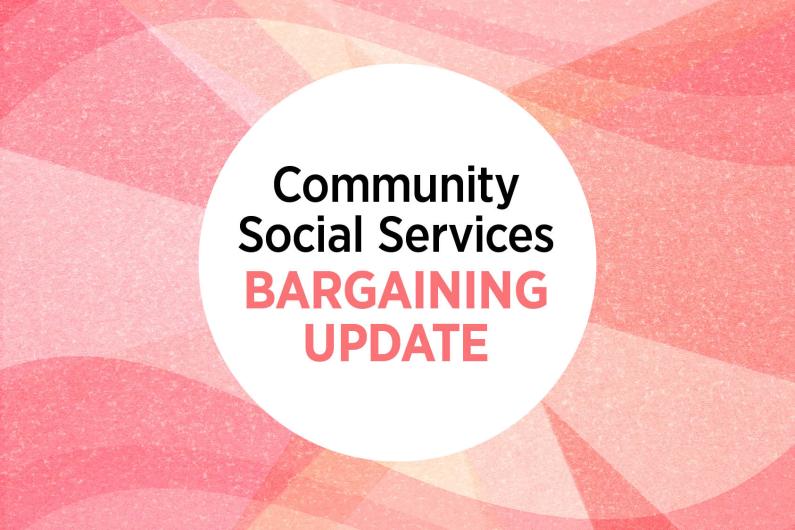
The Community Social Services Bargaining Association (CSSBA) has reached a tentative agreement with the Community Social Services Employers’ Association (CSSEA). This agreement covers 17,000 workers in the sector, with nine unions, including about 1,500 HEU members.
Representatives on the bargaining committee from every union unanimously support the tentative agreement. The HEU Provincial Executive has yet to review the terms of the settlement. In the coming days, details of the agreement will be shared, along with information on how and when you can vote.
The CSSBA has been at the table since February 2022 to negotiate for fair and equitable wages to address rising costs, meaningful recognition and rights for workers and additional mental health support.
The tentative agreement has a three-year term and includes the following highlights:
- Low-wage redress* increases, retroactive for all employees past and present to April 1, 2022;
- 25 cents an hour increase to all wage grids, retroactive for all employees past and present to April 1, 2022
- 3.24 per cent increase to all wage grids, retroactive for all employees past and present to April 1, 2022
- At least a 5.5 per cent general wage increase, effective first pay period after April 1, 2023
- At least a 2 per cent general wage increase, effective first pay period after April 1, 2024;
- Additional wage comparability increases for all classifications
- Increase to transportation allowance, effective date of ratification;
- 100% paid sick leave, effective April 1, 2024
- Improvements to health and welfare benefits, leave provisions, safety and health, layoff and recall, bullying and harassment language.
In addition, the following are highlights on the gains achieved specifically for Indigenous Services:
- Wage parity for all classifications with Main Public Service collective agreement
- Retention incentive payment for all classifications
- Commitment to continue discussions on parity with Main Public Service agreement for recruitment and retention, compensatory recognition for cultural competency and further Indigenization of the collective agreement.
* Low-wage redress (LWR) refers to funds that are meant to help reduce long-term inequalities in compensation in both community social services and health care sectors.
Please make sure all CSS members have up to date email information with HEU.